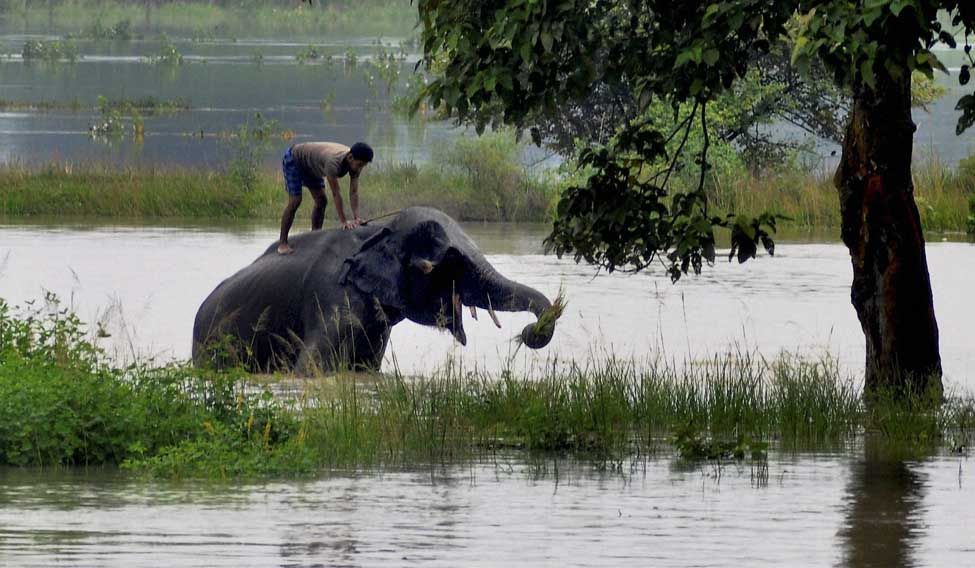The man-elephant conflict has assumed alarming proportions in Assam this year, raising the hackles of conservationists and compelling the state government to take initiatives to resolve the issue.
Altogether 70 elephants have died this year and causes vary from train accidents to poisoning and electrocution, according to the forest department.
Unnatural deaths account for 48 jumbo lives, though conservationists claim the figure may go up to 70 if trans-boundary fatalities are taken into account. Injured elephants often stray into neighbouring states and even to Bhutan and Bangladesh.
A total of 48 people have been trampled to death by elephants till November this year, a forest department estimate revealed.
The human casualties mostly occur during the dry season when the animals move out of their habitat in search of food and water.
Assam Chief Minister Sarbananda Sonowal voiced concern over the recent incident of a train mowing down five elephants in Sonitpur district, and directed the forest department to take concrete measures to solve the crisis.
The recent rise in number of elephant deaths is a matter of serious concern, Sonowal said.
More number of jumbos are seen moving out of their habitats to shift to new areas, he added.
Forest Minister Pramila Rani Brahma pointed out that her department has taken certain initiatives to resolve the man-elephant conflict, which has seen a rise in the recent years due to growth in human population, encroachment of forest areas and deviation of elephant routes.
The forest department has set up control rooms at its divisional offices to monitor the situation and anti-depredation squads have been set up in each division to deal with the problem.
The department along with North East Frontier Railways has organised awareness workshops for train drivers to help them tackle a situation arising out of elephant movement near railway tracks.
"The department will involve the local youths as volunteers to resolve the issue of man-elephant conflict," she said.
Forest officials have also appealed to the public to report about elephant movement in human habitats, near railway tracks or loose electric wires, at the nearest forest office, police station, circle office, electricity department and nearest railway station.
"The department is striving hard to deal with the various challenges posed (by man-animal conflicts)... We cannot solve this complicated problem without the help and cooperation of the public," the minister said.
The primary reason behind the increase in man-elephant conflict is the decline of forest cover in the area, noted conservationist and the secretary-general of NGO Aarayank, Bibhab Talukdar said.
Human interference in the guise of development has destroyed and fragmented wildlife habitats and blocked migration routes, he said, adding that fast distribution of compensation to the next of kin of those killed by elephants could reduce the anger of local people.
Talukdar also urged the forest department to undertake afforestation drives, identify areas where the elephants move and undertake joint patrolling with railway personnel, involve local people to provide information and conduct awareness campaigns.
-PTI





